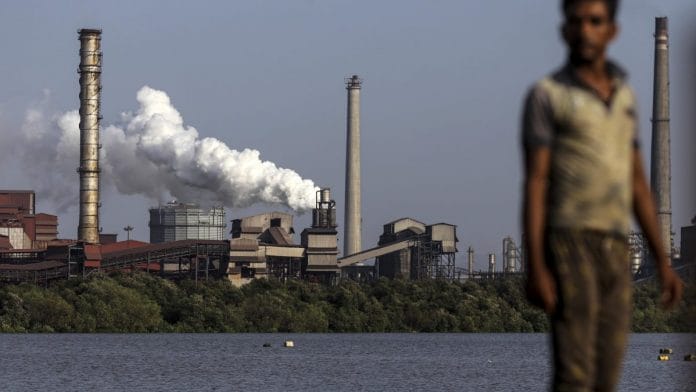Mumbai: India’s most valuable steel producer is looking outward as the slowest economic expansion in six years cuts demand in the South Asian country and puts pressure on margins.
JSW Steel Ltd. expects to exceed its export target of 2.2 million to 2.4 million tons for the fiscal year “after having seen the slowdown in the domestic demand,” Joint Managing Director Seshagiri Rao said Thursday in an interview. That’s a reversal from April, when the Sajjan Jindal-led mill left its export target unchanged from a year earlier.
There has been a substantial increase in inventories, indicating falling demand in the last two months, Rao said in Mumbai. For the full year, growth will be slower than the earlier estimate of 6.5% to 7%, he said.
Demand for steel in India could grow at the slowest pace in three years as a crisis in the country’s shadow banking sector fueled a cash crunch and economic growth slowed to a six-year low. The S&P BSE Metal Index is the biggest loser among 19 sector indexes on the Bombay Stock Exchange and shares of JSW have slumped nearly 28% this year.
“What we are hearing is that a lot of companies, particularly sponge iron players, pellet players and lot of secondary players are either cutting down or moderating production. Only the big players are still continuing and trying to sell and reduce inventories,” Rao said. “If demand doesn’t recover in the second half, then primary producers” may have to review their production plans.
JSW will be able to meet its production target of 16.95 million tons for the current year despite a 13% slump in August and the company won’t scale back its capital expenditure plans. Additional risks are seen from rising tax-free imports from South Korea and Japan. The countries don’t tax imports of raw materials unlike India, making it difficult for Indian mills to compete, he said.
“Historically, the second half is much better in terms of volumes and profitability,” he said. “There will be an improvement in demand in the second half compared to the first half” on more government spending and the release of pending payments to industries.- Bloomberg
Also read: JSW Steel pockets second major stressed asset as NCLT approves bid for Bhushan Power






